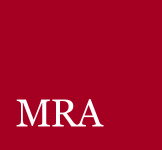
A. This is one of the most important questions to ask a property manager or your landlord when moving into a rental property. Every individual has their unique needs and requirements. If your landlord is looking to keep tenants for a minimum of two years at a time and you do not want to take the rental property for more than a year, you should make it very clear at the very first point of discussion.
A. Have you decided upon moving into a rental property? Before you sign the lease agreement, you need to figure out how your landlord or the property management company check your tenancy history. Usually, a property manager or a landlord does their best to do a detailed background check before handing over the rental property to you. It is the responsibility of the property manager to check your tenancy history as they strive to protect their client’s investment. You need to ask the property manager or your landlord about which system they use to check your creditworthiness or any breaches in your rental history.
A. Having a clear idea beforehand about which payment methods are accepted by your landlord will help you to plan your life better. You need to ask the property manager or your landlord about which payment method do they prefer. This will also create a good first impression. To make it easier for you to pay your rent on a regular basis, most landlords prefer online payments (Direct Debit/bank transfer, etc.). The online payment method is trusted by most landlords because it is highly convenient and secure for both the parties involved.
A. The terms and conditions of the tenancy agreement are set by the property owner. Some landlords opt for a flexible lease agreement which requires only a single tenant’s name. However, some landlords prefer a rigid structure which requires every individual over a certain age to sign the agreement. Some of them allow pets and children and some don’t. If you have children and pets or if you are planning to expand your family, be upfront and inform your landlord at the very beginning.
A. It is foolish to assume that your landlord’s property insurance will cover any damages caused to your valuable belongings. Your landlord’s home insurance will only cover the apartment or the house they are renting out but not your valuable items. You need to arrange for your own contents insurance if you want to protect your valuables.
A. To avoid any mishap over the course of time, you need to discuss the rental arrears policy with your landlord or the property manager in detail. If your landlord has hired property management services, the property manager will give you a clear picture of their rental arrears policy. Asking this question at the outset of the tenancy could put you in a difficult situation as most landlords would want a tenant with a good financial condition.
A. Usually, landlords have their own repair person or contractors to take on maintenance works or to handle any kind of emergency situation at the property. If your landlord has hired property management services, a property manager will get quotes from repair contractors of their choice. However, it is wise to discuss this issue with the property manager or the real estate agent to make sure you know what to do if the rental property requires maintenance.
A. Lease agreements do not have a fixed format. Some of them include utility bills (water, electricity, gas bills) as a part of the total rental payment. On the contrary, some lease agreements do not include utility bills. There might be special cases where a lease agreement could also include garden maintenance. The format of the lease agreement is set by the landlord himself. This is why you need to ask the property manager or the owner if any other bills are included in the rental agreement.

Merlot Residential Australia (MRA) is a full service real estate agency focusing on investment property sales and asset (property) management of all MRA Property homes.
3/36 Harvest Court
SOUTHPORT QLD 4215
+61 7 5528 1009